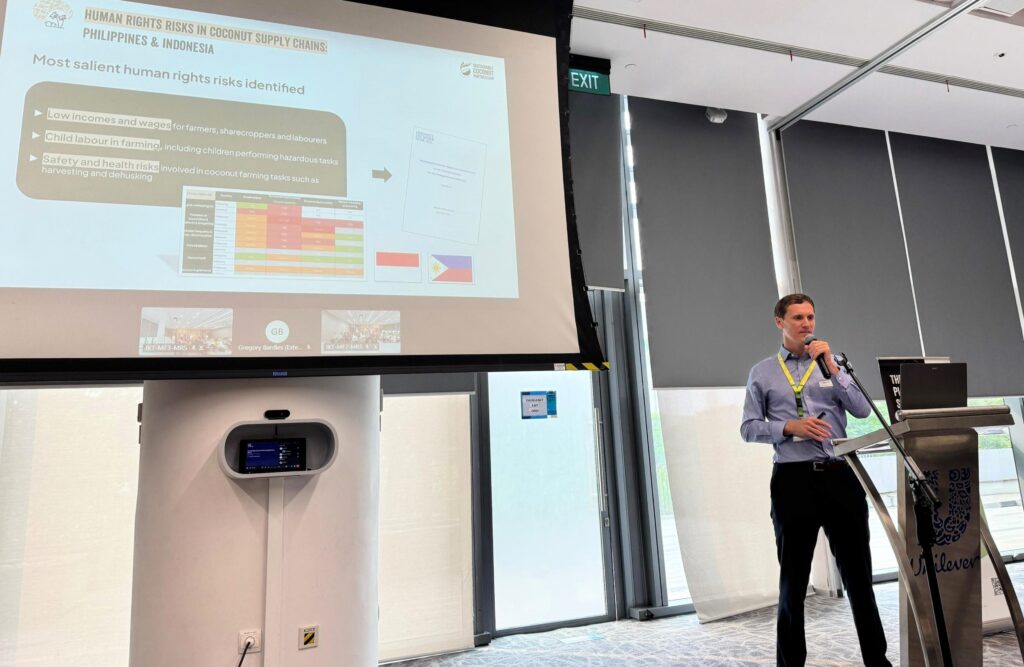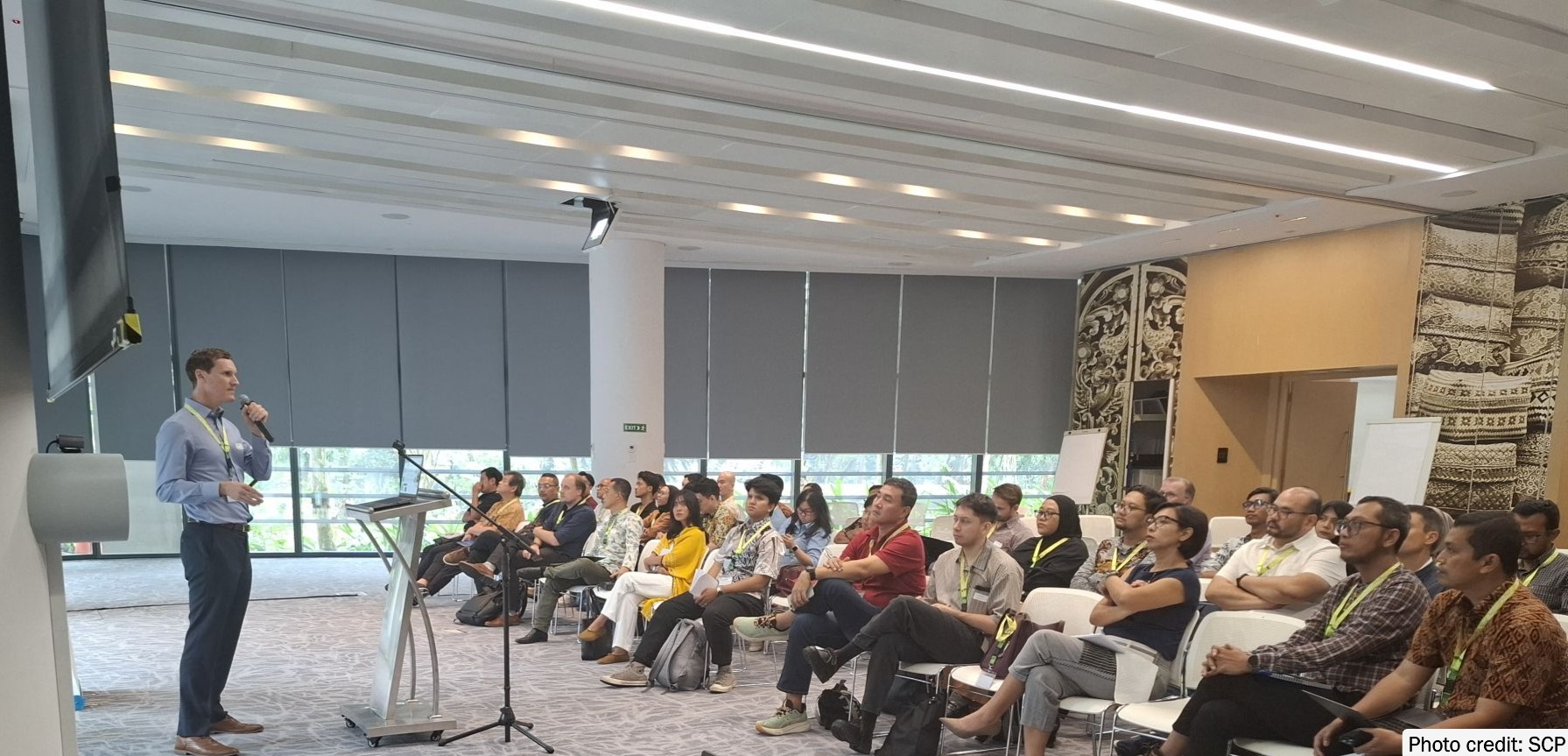DIWA attended the Sustainable Coconut Partnership (SCP) Gathering in Indonesia on June 5, 2025
The challenges facing the coconut sector are significant—but so is the collective will to address them. This was a central theme during the Sustainable Coconut Partnership (SCP) Indonesia Gathering 2025.
As part of the day’s proceedings, SCP highlighted DIWA’s findings from our 2024 report Assessment of Human Rights and Living Income in the Coconut Industry for the Philippines and Indonesia. Three salient issues from the report were discussed with attendees:
- Low incomes and wages for farmers, sharecroppers, and laborers
- The use of child labor in farming, including involvement in hazardous tasks
- Safety and health risks related to farming tasks such as harvesting and de-husking
Among participants there was broad agreement on the need to support farmers, workers and communities who sustain the industry, alongside the rejuvenation of trees. Achieving long-term sustainability will require improving both the productivity of the trees and the wellbeing of farmers and workers in the sector—ensuring economic viability and continuity across generations.
Government representatives from the Indonesian Ministry of Plantations (Bappenas) demonstrated awareness of the sector’s challenges, sharing plans and their strategic direction, including presenting excerpts from the newly-published Coconut Development Roadmap 2025–2045 (available in Indonesian here).
While these policy proposals are promising, many stakeholders emphasized the need for coordinated action, given supply shortages in the processing industry. DIWA’s experience in the sector points to the importance of multistakeholder engagement that can assess and address risks, including those faced by upstream communities such as weather and price shocks. Ensuring that coconut continues to be a viable crop at farm-level will require sustained efforts for transparent pricing and towards formal agreements and working arrangements.


